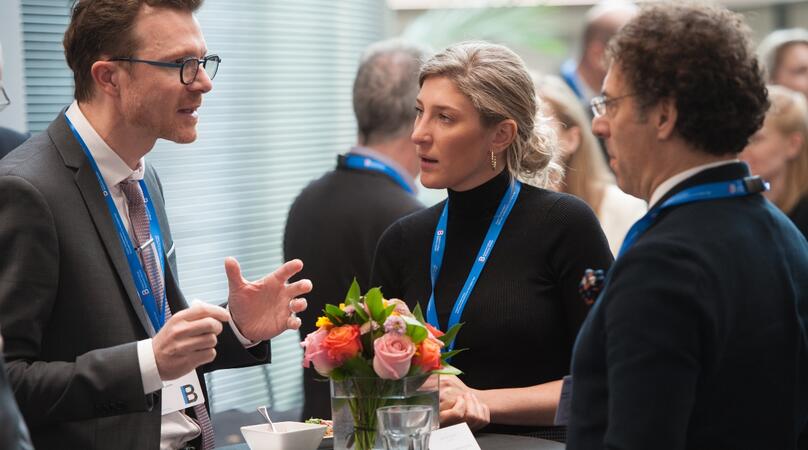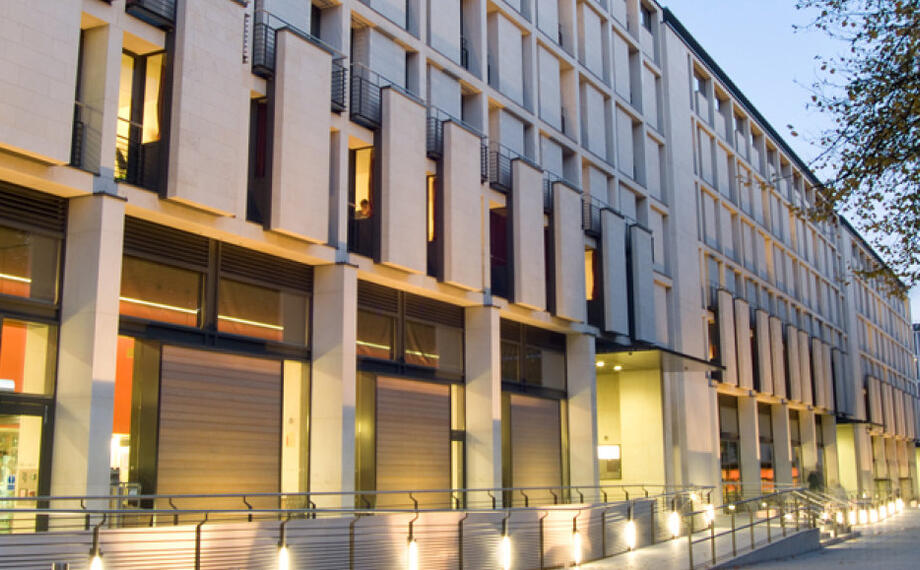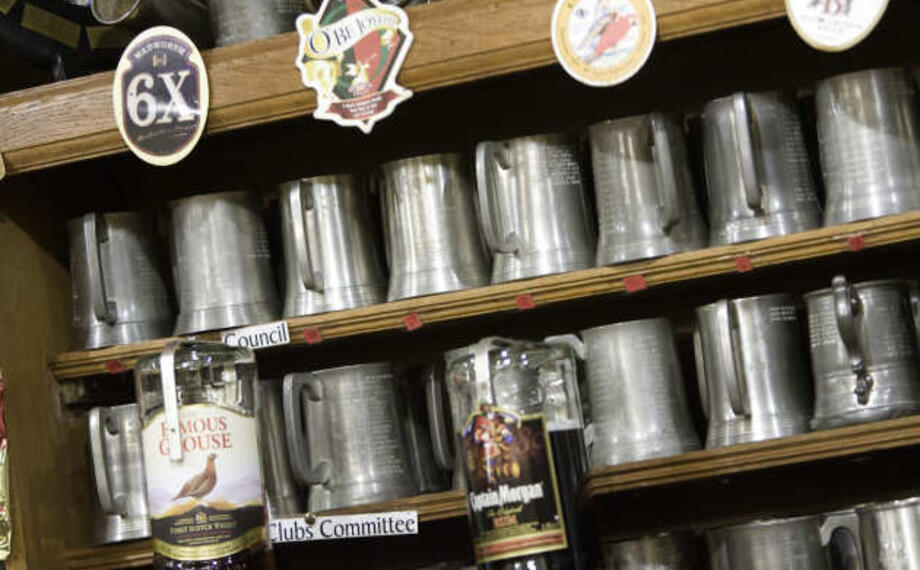Joint Honours
One year
Combine science and management at a top London Business School
Complement your science degree with a challenging and innovative one year programme in management
Our joint honours “Year in Management” programme equips current Imperial science students with managerial skills and business acumen, empowering the next generation of scientists to work on complex, collaborative projects. This interdisciplinary approach is essential for driving innovation and advancement in an ever-evolving scientific landscape.
Run in collaboration with the departments of Biochemistry, Biology, Medical Biosciences and Chemistry within Imperial, this one year programme covers the operating environment of business organisations to prepare students for management roles. You will develop strong conceptual, analytical and leadership skills to broaden your academic experience, studying alongside students from other disciplines.

A long history of teaching
Running since 1991, the year in Management programme has a long history of equipping science major students with the skills needed to succeed in the workplace.

Clubs and societies
The Business School supports many student-led careers clubs including Finance, Consulting, Technology, Healthcare, Sustainability and Social Impact. This is a great way to develop your interests and meet like-minded students.

Complement your science degree with essential business acumen
Benefit from the expertise of Business School faculty to gain an understanding of the management and operating environment of business organisations and learn how to apply your knowledge to real-world problems.

Networking opportunities
Joining students from the Departments of Medical Biosciences, Life Sciences and Chemistry, and co-taught with students on our Intercalated BSc, completing your degree with a year in Management is a fantastic opportunity to expand your network.
Programme content
The curriculum covers a wide range of topics, including accounting, strategy, entrepreneurship and marketing with a strong focus on leadership, problem-solving and innovation. Through formal teaching, group projects, case studies and guest speakers, you will broaden your academic experience and gain valuable insights into the management and operating environments of business organisations.
Please note, programme content is subject to change.
Online pre-study modules
Before the start of your programme you will be expected to complete online pre-study modules which are delivered via The Hub, our bespoke virtual learning environment. You will complete two online primer modules in maths (strongly recommended) and plagiarism awareness (compulsory), to get ready for the year ahead. You will also be given the opportunity to explore an Economics primer and an introduction to some programming languages (these are encouraged but not compulsory).
Induction
The programme starts with a comprehensive induction, which includes sessions to support your transition to the field of business and management studies, such as workshops on the Fundamentals of Business, and Working Successfully as a Group. You will also meet and network with the rest of your cohort, as well as students from our Intercalated BSc programme, working together in small groups to compete in a non-assessed business simulation game, culminating with a group presentations on what you have learned.
Accounting
The aim of this module is to develop certain accounting related skills, by explaining the techniques of financial accounting and management accounting, and examining their relevance to the broader issues of financial decision-making and management control in organisations. The module gives you a basic insight into the way that business performance is measured, and how business decisions can be structured and analysed.
Business Economics
Economics provides a useful set of tools for analysing the world and aiding decision-making by businesses and governments. This module aims to give you an overview of several of these tools and of the insights that can be obtained with them. We will particularly focus on the tools most relevant to businesses. We will pay particular attention to the actions of firms and individuals in the context of market interaction and strategic (game theoretic) interactions in business contexts.
Organisational Behaviour and Human Resource Management
The focus of this module is on developing your understanding of modern organisations and the tools you will need to contribute effectively in them. Much of your success as leaders, managers, and professionals will depend on how well you work with and get things done through others. The module places a strong emphasis on giving students the chance for assessing and improving their own competencies in dealing and interacting with others in organisations.
Entrepreneurship
Entrepreneurship is the process of identifying and exploiting a new business opportunity. An entrepreneur must understand the competitive landscape, estimate the potential demand for their products or services, assess risks and returns, and develop and execute the possible ways to deliver their claims to the best set of consumers. The entrepreneur also needs to acquire resources (funding), compile a team, and generate a vision for the fledgling enterprise.
Finance & Financial Management
This module will provide you with a foundation in the theoretical tools to analyse modern financial markets and the decisions of corporate firms. This theory of finance will enable you to understand why companies and financial markets (investors) behave the way they do. Throughout the module, the presentation of the theory underlying each topic is integrated by examples and real-world problems.
Innovation Management
This module aims to equip you with an understanding of the main issues in the management of technological innovation and an appreciation of the relevant skills needed to manage innovation at both strategic and operational levels. It provides evidence of different approaches based on real-world cases of leading incumbent and challenger firms.
Marketing
This module discusses fundamental topics of marketing decision making to demonstrate how a company can connect with and serve its customers better than its competitors and continue to do so over time. The overall aim of the module will be on understanding the role of marketing in the value creation process.
Sustainable Business
The concept of Sustainable Business is at the forefront of contemporary global business practice and the development of business strategies for the benefit of people, planet and profit. Central is the establishment of medium to long term thinking, encompassing the needs of a broad stakeholder base, as opposed to short term commercial results for shareholders (a subset of stakeholders). The key objective of this module is to sensitise you to the interaction between global business, society and the planetary limits in which they operate within.
Group Project
The Group Project is a vital component of the programme that forms part of the Research Methods and Practice module. It is a challenging piece of work that aims to equip you, in a short period of time, with a solid basis of research skills. Focusing on a topical management issue, your group’s research will culminate in the submission of a major written report and a presentation.
Research Methods and Practice
This module offers you the opportunity to develop skills in research methods so that you can design and conduct empirical research. You will acquire techniques in quantitative and qualitative analysis and interpretation to allow your results to be analysed and presented, and potentially have significant impact on real-world practice. This will also equip you to contribute to a major Group Project.
What our students say

“The Joint Honours Management programme really helped me understand a range of skills we use in day-to-day work. From managing individuals, to understanding finances and tailoring comms to particular audiences. It was invaluable!”

Application process and eligibility criteria
Students of Chemistry, Life Sciences or Medical Biosciences who wish to transfer to the joint 'with Management' pathway, should in the first instance contact their home department to request further information about the relevant transfer process and deadlines.
Typically, students who wish to transfer should have completed at least one year of undergraduate study, and achieved a minimum overall combined performance of a 2:1 in year 1 (and year 2, if applicable).
Students who do not meet this requirement may still be considered, if their application is endorsed by their Personal Tutor or Director of Undergraduate Studies. They may also be asked to attend a short interview with the Business School.
Start your journey today
What our students say

“I decided quite early on in my Biology degree that, although I loved the sciences, I wanted a career outside academia. I always thought business-related skills would be exciting to use in my professional life and would come more naturally to me than being in a lab. I felt that doing the Management year would provide me with a foundation for this so that I could enter an industry where I was using business skills whilst working in a science context.”
Meet your faculty
Our world-class faculty* are leaders in the field of business practice. They combine theoretical knowledge from their cutting-edge research with the latest practical insights from their extensive network with industry and government.
*Faculty members teaching on this programme are subject to change.


Esther Canonico-Martin



Christian Hampel





Gregory Theyel
Frequently asked questions
The Joint Honours "Year in Management" programme is run in collaboration with the departments of Biochemistry, Biology, Medical Biosciences and Chemistry within Imperial. Undergraduate students from these departments may apply to complete their final year at the Business School, to graduate in their science discipline 'with Management' (e.g. Chemistry with Management).
The Management year of the Joint Honours Programme covers the management and operating environment of business organisations to prepare students for an eventual career in management.
A group would normally consist of five or six students who investigate a particular management-related problem, ideally focusing on a company, group of companies or an industry. A faculty member supervises each group, and students are given social research methods training in the Autumn term to help prepare them for the research they will undertake through the Spring.
At the end of the summer term, each group writes a joint report of approximately 25,000 words in a format prescribed by the University. In addition, groups will give a presentation of their findings.
In the autumn term the programme examines the economic, financial and organisational framework within which businesses operate. The spring term builds on this general framework and considers the functional issues that arise in the management of business activities. Finally the summer term is timetabled around examinations and the completion of the group project.
Some modules on the Joint Honours and Intercalated BSc programmes will be taught to all students together as a group, while the classes will be split for other modules. All of this information is detailed in the individual programme handbooks issued at the beginning of the academic year.
Assessment for the programme is conducted on a modular basis. Assessments for each module will vary according to the subject matter/nature of the module, but will normally consist of a combination of different coursework assignments and, in most cases, a final examination. Some modules will be assessed by coursework only.
The nature of coursework and the weight attached to coursework marks vary between modules (details will be given at the start of each module). Students will complete both group and individual coursework assignments during the programme, however, deadlines for which will be frequent and fall throughout term.
Examinations for modules with this sort of assessment will take place in January (for Autumn term modules) and April/May (for Spring term modules). Full details of assessment weightings will be listed in the programme handbook at the beginning of the academic year.
Student evaluations are conducted at the end of each module. These evaluations provide an opportunity to comment on module content and presentation. Students are, however, also encouraged to discuss any issues connected with a module/the programme as soon as possible, either with the relevant faculty member; with the Programme Team; or via the student representatives on the Student-Staff Committee (SSC).


